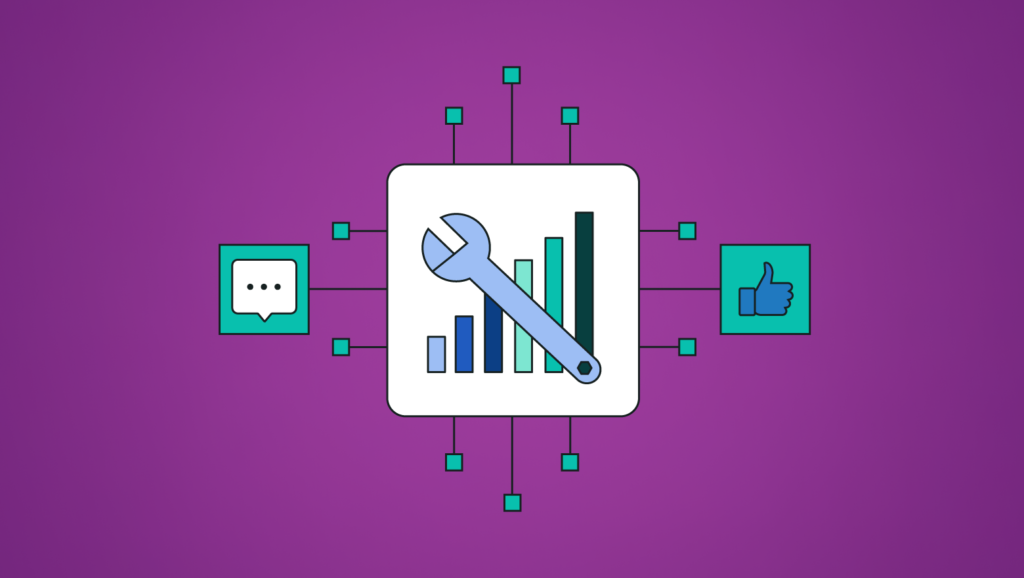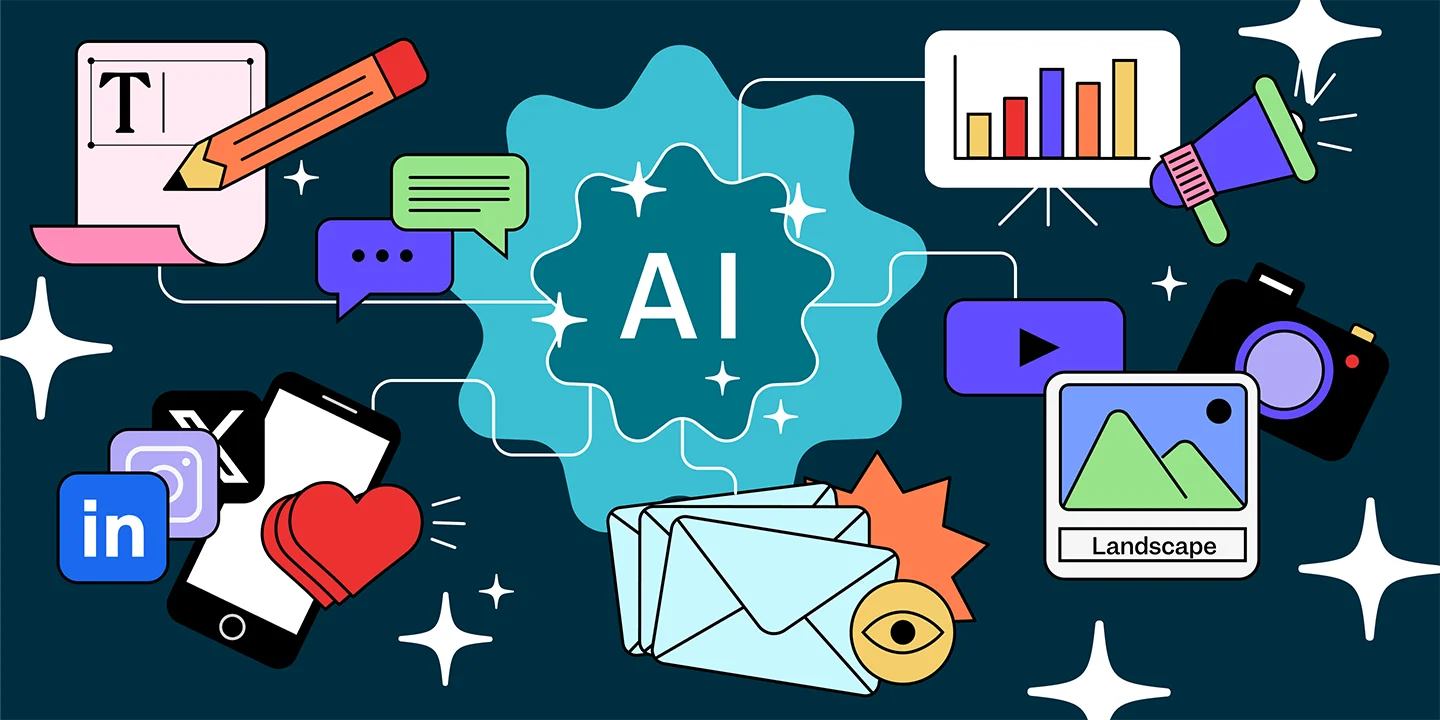Artificial Intelligence AI marketing tools represent an innovative leap in the marketing landscape, providing businesses with sophisticated functionalities that enhance decision-making and optimize customer engagement. These tools leverage advanced machine learning algorithms and data analytics to process vast amounts of information, identifying patterns and extracting valuable insights that can guide marketing strategies.
At their core, AI marketing tools encompass a range of applications, including but not limited to automation software, predictive analytics, and customer segmentation tools. Automation software streamlines marketing processes, facilitating tasks such as email campaigns, social media management, and performance tracking. This not only saves time but allows marketing teams to focus on strategy development rather than repetitive tasks. Predictive analytics, on the other hand, helps businesses anticipate consumer behavior by analyzing historical data, enabling them to fine-tune their campaigns for maximum impact.
Customer segmentation tools utilize AI algorithms to analyze customer data and categorize audiences based on various criteria such as demographics, purchasing behavior, and preferences. This targeted approach ensures that marketing messages resonate with specific segments, thereby increasing engagement and conversion rates. As businesses increasingly recognize the value of personalized marketing, these AI-driven segmentation tools have become essential.
As the landscape of marketing continues to evolve, the integration of AI marketing tools plays a crucial role in remaining competitive. Companies that actively implement these technologies benefit from increased efficiency, improved customer experience, and enhanced analytical capabilities. Staying updated with the latest technological advancements is not just an option but a necessity for marketers who aim to thrive in an increasingly digital and data-driven world. Acknowledging this shift sets the foundation for understanding the broader implications and advantages associated with AI marketing tools.
Benefits of Using AI Marketing Tools
The advent of AI marketing tools has significantly transformed how businesses operate within the competitive landscape. One of the most outstanding benefits of these tools is their ability to enhance efficiency across various marketing processes. By automating tasks such as data collection, lead scoring, and audience segmentation, companies can allocate more time to strategic planning and creative initiatives. This optimized workflow not only reduces human error but also allows teams to focus on delivering targeted campaigns that resonate with their audience.
Furthermore, AI marketing tools excel in improving targeting precision. Through machine learning algorithms, these tools analyze large datasets to discern patterns and establish buyer personas. This capability enables marketers to tailor their content and messages effectively, ensuring that the right products reach the right consumers at the right time. For instance, a study conducted by McKinsey & Company found that companies using advanced analytics saw a 10–20% increase in marketing ROI due to improved targeting and personalization.
In addition to enhanced targeting, AI tools play a crucial role in increasing customer engagement. By utilizing chatbots and virtual assistants powered by artificial intelligence, businesses can provide timely, personalized responses to customer inquiries around the clock. This level of interactivity not only boosts customer satisfaction but also fosters brand loyalty, as customers feel valued and understood. Moreover, AI can analyze customer interactions to recommend products and services, further driving engagement and sales.
Lastly, robust data analysis through AI marketing tools leads to improved decision-making. By leveraging insights derived from data patterns, businesses can make informed choices regarding product launches, pricing strategies, and market positioning. With actionable insights at their fingertips, companies can pivot strategies quickly in response to market changes, ensuring they remain competitive. Therefore, the integration of AI marketing tools not only streamlines processes but also enhances overall business performance, making them indispensable in today’s rapidly evolving marketplace.

Popular AI Marketing Tools in the Industry
As businesses increasingly adopt technology-driven strategies, AI marketing tools have gained widespread recognition for their ability to enhance operational efficiency and consumer engagement. Among the plethora of options available, several tools have emerged as leaders in the industry, each offering unique features tailored to meet various marketing needs.
One of the most notable examples is HubSpot. This all-in-one marketing platform integrates AI capabilities across its services, enabling businesses to streamline customer relationship management (CRM), automate email marketing, and analyze performance metrics seamlessly. Its user-friendly interface appeals to small and medium-sized enterprises looking to bolster their inbound marketing efforts. HubSpot’s AI-powered tools help teams deliver personalized content and optimize strategies based on real-time data, ultimately enhancing customer experiences.
Marketo, another prominent player, focuses on multi-channel marketing automation. Known for its robust analytics features, Marketo provides businesses with insights into customer behavior, making it easier to tailor marketing campaigns effectively. The platform is particularly beneficial for larger organizations with complex sales cycles, as it assists in lead nurturing and scoring, thus improving conversion rates. Marketo’s capabilities allow for targeted marketing initiatives that resonate with specific audience segments.
For social media management, Hootsuite stands out as a formidable AI marketing tool. It simplifies the process of scheduling posts across multiple platforms while providing analytical insights to gauge engagement rates. Hootsuite’s AI features help marketers identify content trends and optimal posting times, ensuring maximum reach and impact. Its versatility appeals to businesses of all sizes, making it an essential tool for maintaining an active online presence.
These are just a few examples of the growing number of AI marketing tools available, each offering distinct advantages. By understanding their functionalities, businesses can make informed decisions to enhance their marketing strategies effectively.
Challenges and Future of AI Marketing Tools
The integration of AI marketing tools into business strategies presents a set of challenges that need careful consideration. One significant hurdle is data privacy. As organizations leverage AI to analyze consumer behavior and preferences, they must navigate stringent regulations such as GDPR, which dictate how personal data can be collected and utilized. Ensuring compliance while maintaining effective marketing practices is critical for success. Companies must establish transparent data handling processes and prioritize consumer consent to build trust and mitigate the risks associated with data breaches.
Another challenge lies in the necessity for skilled personnel. The effective implementation of these advanced marketing tools requires a workforce that is not only adept in digital marketing but also well-versed in data science and AI technologies. Organizations may find it challenging to recruit professionals with the right blend of skills, leading to potential gaps in the execution and optimization of AI-driven marketing strategies. Investing in training programs and fostering a culture of continuous learning can help businesses close this skills gap, empowering their teams to fully leverage AI marketing tools.
Furthermore, there is the pressing issue of potential biases within AI algorithms. These biases can arise from flawed data sets or unintended discriminatory logic embedded within the AI models, affecting the fairness and effectiveness of marketing messages. Companies must actively work to identify and mitigate biases to ensure that their AI marketing tools promote equity and inclusiveness in their campaigns.
Despite these challenges, the future outlook for AI marketing tools remains promising. Emerging trends, such as the increased application of no-code platforms and advances in natural language processing, are paving the way for more intuitive and accessible marketing solutions. As technology continues to evolve, businesses should remain adaptable and proactive in their approaches, positioning themselves to harness the full potential of AI marketing tools effectively.
